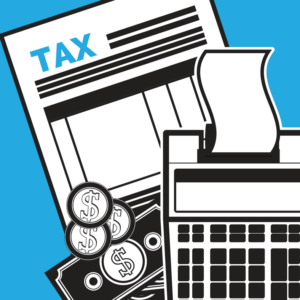
There is nothing more thrilling than tax season! Every year tax season is like riding a roller coaster; if you made too much money your stomach flips when you realize you owe Uncle Sam some money. But if you don’t owe, you get an adrenaline jump when you realize you are getting some money back. Either way, it is time to compile receipts and crunch numbers. But do not worry, our financial experts compiled some facts you need to know before you file your tax return. These are the 10 Things You Need to Know About Tax Season:
- Tax season begins January 29, 2017. The Internal Revenue Service announced that the nation’s tax season will begin Monday, Jan. 29, 2018 and reminded taxpayers claiming certain tax credits that refunds won’t be available before late February.
- The last day to file your taxes is April 17th, 2018. The nation’s tax deadline will be April 17 this year – so taxpayers will have two additional days to file beyond April 15.
- The average refund is $3,120. The IRS has processed nearly 50 million returns, about one-third of the total individual federal income tax returns the agency expects to receive this year, with almost 83 percent of those returns resulting in refunds.
- Child tax credits increased. The credit would increase to up to $2,000 per child, and the first $1,400 would be refundable according to the TPC analysis, meaning the credit could reduce your tax liability below zero and you would still be able to receive a tax refund.
- Child and dependent care are tax deductible. If you paid to take care of a child (under the age of 13 and in your custody) or a spouse or adult dependent that is incapable of self-care, you might qualify for this tax credit, which can offset a percentage of the cost of their care.
- College is tax deductible. There are 2 main education tax credits for qualified expenses (such as tuition and enrollment fees) paid by certain taxpayers for themselves, their spouse, or a dependent.
- Medical expenses are tax deductible. Taxpayers can deduct medical expenses that exceed 5 percent of AGI in 2017 and 2018, but the new deduction level ends Jan. 1, 2019.
- Almost 90% of individual tax returns are now e-filed. The IRS has reported that as of April 2017, more than 122,164,000 million tax returns were e-filed for Tax Year 2016. The number of tax returns safely e-filed has continued to increase each year. The increasing trend among taxpayers to e-file is shown in the charts below.
- California is the top taxpayer Comparisons of 2017 tax rates compiled by the Federation of Tax Administrators ranks California as the top taxer with a 12.3 percent rate unless you make more than $1 million and have to pay 13.3 percent.
- You can get free help preparing your taxes! The Volunteer Income Tax Assistance (VITA) program offers free tax help to people who generally make $54,000 or less, persons with disabilities and limited English speaking taxpayers who need assistance in preparing their own tax returns. IRS-certified volunteers provide free basic income tax return preparation with electronic filing to qualified individuals.
Do you need to file taxes?
Some factors determine whether you need to file a tax return — including your annual income, your age, your marital status, and whether or not you have dependents. It is important to make sure that you are exempt from filing, so you don’t mistakenly neglect to submit a tax return to the IRS. If you are wondering whether or not you need to file a tax return, take the IRS Quiz to find out.